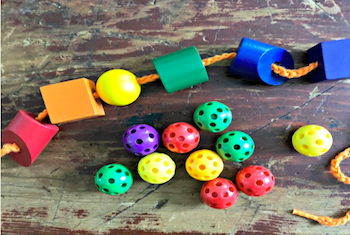Stop Praising Your Child’s Intelligence – Here’s What Research Says You Should Do Instead
Are you accidentally teaching your child to fear failure?
If you’re like 87% of parents, you probably tell your child “You’re so smart!” when they solve a problem or get a good grade. But here’s a shocking truth: this well-intentioned praise might be sabotaging your child’s potential for lifelong learning and success.
Professor Carol Dweck’s groundbreaking research at Columbia University reveals that praising intelligence actually creates anxiety and reduces motivation. Children who hear “You’re brilliant!” start thinking, “If I try something new and fail, my mom will no longer think I’m so smart.”
What if I told you there’s a simple shift in how you respond to your child that could unlock their natural genius and create a fearless learner? Today, you’ll discover the science-backed strategies that turn ordinary children into creative problem-solvers who thrive on challenges.
Your Baby Is Already a Genius – Don’t Ruin It
Here’s something that’ll blow your mind: your baby is conducting complex scientific experiments every single day. They’re testing gravity by dropping food, exploring cause and effect by banging toys, and developing sophisticated theories about how the world works.
But here’s the kicker – most parents accidentally crush this natural brilliance.
How? By focusing on achievement instead of effort. By insisting on “right” answers instead of creative thinking. By jumping in too quickly when frustration hits.
Your child starts life as a fearless explorer. Don’t let them become a cautious perfectionist.
The Zone of Development: Where Magic Happens
Want to see your child’s eyes light up with genuine excitement? Work within their “zone of development” – that sweet spot where they’re challenged but not overwhelmed.
Here’s how you do it:
Follow Their Lead, Not Your Agenda
Stop assigning tasks. Instead, watch what captures your child’s attention. If they’re fascinated by putting shapes through holes, that’s your cue. Their interest is your roadmap to learning.
Become Their Support System, Not Their Boss
When your child struggles with a toy that requires multiple steps, don’t take over. Reduce the obstacles instead:
- Stabilize the box while they focus on inserting shapes
- Open the door so they can press the button
- Hold the puzzle steady while they place pieces
You’re not doing the work for them – you’re removing barriers so they can succeed.
Turn Frustration Into Fuel
Here’s where most parents mess up. When your child gets frustrated, your instinct is to either solve the problem or distract them with something easier.
Wrong move.
Frustration signals that learning is happening. It means their brain is stretching. Instead of rescuing them, encourage persistence with phrases like “We can do it together!” or “Let me help you figure this out!”
The Demonstration Dance: Show, Don’t Tell
When motivation flags, it’s showtime. But here’s the trick – demonstrate while keeping them engaged:
“See? The ball went into the box! Now you try!”
As you show them the process, you’re not just teaching the task – you’re modeling problem-solving behavior. Everyone learns through imitation, and your child is watching your approach to challenges.
Make It Click With Connections
Your child’s brain is constantly looking for patterns. Help them out:
“This is like the toy you played with at Joey’s house. Remember? This one works almost the same way!”
By linking new challenges to familiar experiences, you’re giving their brain a head start.
The Achievement Trap: Why “You’re So Smart” Backfires
Here’s a hard truth: your children will miss 100% of the shots they don’t take.
When you praise intelligence (“You’re so smart!”), you’re teaching them that being smart means not making mistakes. This creates what psychologists call a “fixed mindset” – the belief that abilities can’t be improved.
Children with fixed mindsets avoid challenges because failure might prove they’re not as smart as everyone thinks.
The Power Phrase That Changes Everything
Instead of praising intelligence, praise effort and strategy:
- “I love how you kept trying different approaches!”
- “Your hard work really paid off!”
- “You found a creative solution to that problem!”
This creates a “growth mindset” – the belief that abilities can be developed through effort and strategy.
Embrace the Beautiful Mess of Learning
Want to raise a creative genius? Stop insisting there’s only one right way to do things.
If your child comes up with a novel solution to a problem, celebrate it! Even if it’s not the “proper” way, their creative thinking is more valuable than following rules.
Show Them You’re Human Too
Here’s a game-changer: let your children see you make mistakes. Better yet, let them correct you!
“Oops, I put this piece in the wrong spot. Can you help me fix it?”
This does two powerful things:
- It removes the pressure to be perfect
- It shows learning as a lifelong adventure
The 21st Century Skills Your Child Really Needs
Computers can calculate faster than any human. They can store infinite information and follow complex instructions flawlessly.
But no computer can replicate human creativity.
As you watch your child play around with ideas and connect facts in new ways, they’re developing the exact skills that will make them irreplaceable in tomorrow’s world:
- Creative problem-solving
- Independent thinking
- Resilience in the face of challenges
- The ability to learn from failure
These aren’t just nice-to-have skills – they’re survival skills for the 21st century.
Your Action Plan: Start Today
You don’t need expensive toys or elaborate programs. You just need to shift how you respond to your child’s natural learning process.
That said, open-ended educational tools like Spielgaben can be incredibly valuable because they grow with your child throughout their entire childhood. These simple geometric shapes and natural materials spark creativity from toddlerhood through elementary years – making them a smart investment, not just another toy that gets outgrown.
Start with these three simple changes:
- Replace “You’re so smart” with “I love your effort” – This single switch will transform how your child approaches challenges
- Let them struggle for 60 seconds before helping – Frustration builds resilience and problem-solving skills
- Celebrate creative solutions, even messy ones – Innovation comes from thinking outside the box
Pick just two of these strategies and implement them this week. Don’t overwhelm yourself trying to change everything at once.
Remember: your child’s natural curiosity is their superpower. Your job isn’t to fill their head with facts – it’s to keep that curiosity alive and thriving.
The children who change the world aren’t necessarily the ones who scored highest on tests. They’re the ones who never stopped asking “What if?” and “How come?” and “Let me try a different way.”
Keep it simple, keep it fun, keep them curious.
Ready to unlock your child’s natural genius? Start with praise that focuses on effort, not intelligence. Your future innovator is counting on you.













LEAVE A COMMENT